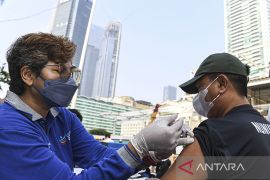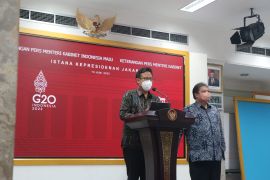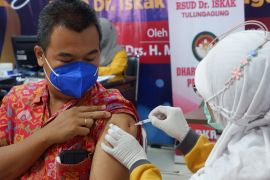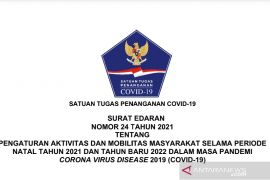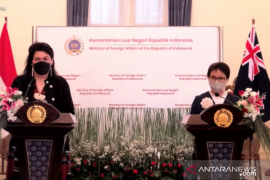The oral rotavirus vaccine candidate, RV3, being launched on Saturday 2 March by Health Minister Dr Nafsiah Mboi, is aimed at reducing diseases and deaths from diarrhoeal disease.Jakarta (ANTARA News) - A new vaccine that has the potential to save the lives of thousands of babies highlights innovative Indonesia-Australia research collaboration, the Australian Embassy here said in its official website on Friday.
The oral rotavirus vaccine candidate, RV3, being launched on Saturday 2 March by Health Minister Dr Nafsiah Mboi, is aimed at reducing diseases and deaths from diarrhoeal disease.
Rotavirus "gastro" is a life-threatening diarrheal disease that results in the death of over half a million children under five years of age worldwide each year.
In Indonesia, diarrhea is the leading cause of death in children under five years of age, and rotavirus has been found to be the cause of 35-84 per cent of diarrhea in children under five admitted to hospital with gastroenteritis.
The aim is that RV3 will be an effective and affordable vaccine, designed to be given orally to newborn babies to provide the earliest possible protection.
"I would like to congratulate the researchers from Australia`s Murdoch Children`s Research Institute (MCRI) and Indonesia`s Universitas Gadjah Mada on this world-first approach to reduce disease and deaths among vulnerable children," said Dr David Engel, Deputy Head of Mission at the Australian Embassy Jakarta.
"This research demonstrates the positive benefits of collaboration between world-class scientists in Australia and their Indonesian counterparts,"Dr Engel said.
The research builds on an established collaboration between UGM and the Rotavirus Group at MCRI/Royal Children Hospital and University of Melbourne extending back almost 40 years involving academic exchange, research and training.
A process of transfer of knowledge and seed of the vaccine has been delivered to Biofarma, an Indonesian state-owned pharmaceutical company.
This vaccine will be dedicated to neonates in Indonesia and other less developed countries, where neonatal death is still number one, compared to other causes. Additionally, diarrheal diseases are the highest cause of child death in developing countries besides pneumonia.(*)
Editor: Heru Purwanto
Copyright © ANTARA 2013
